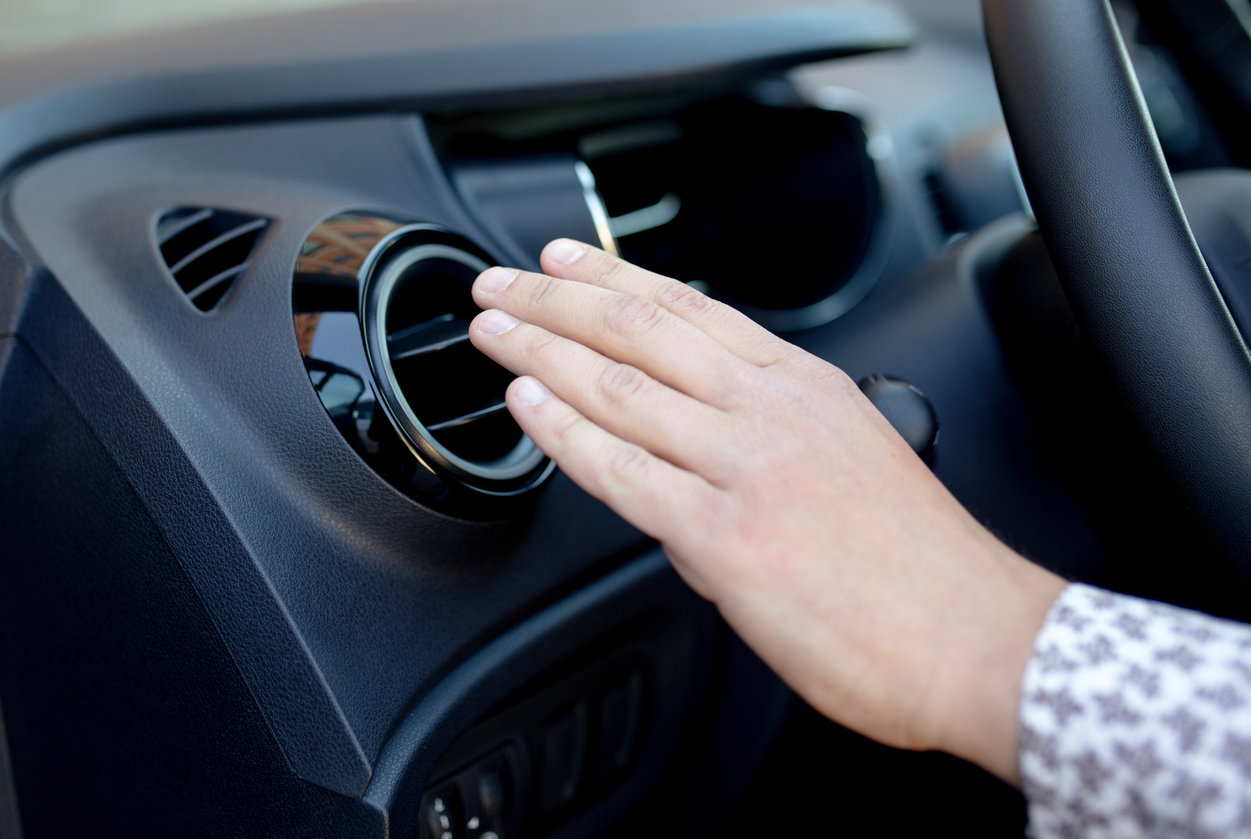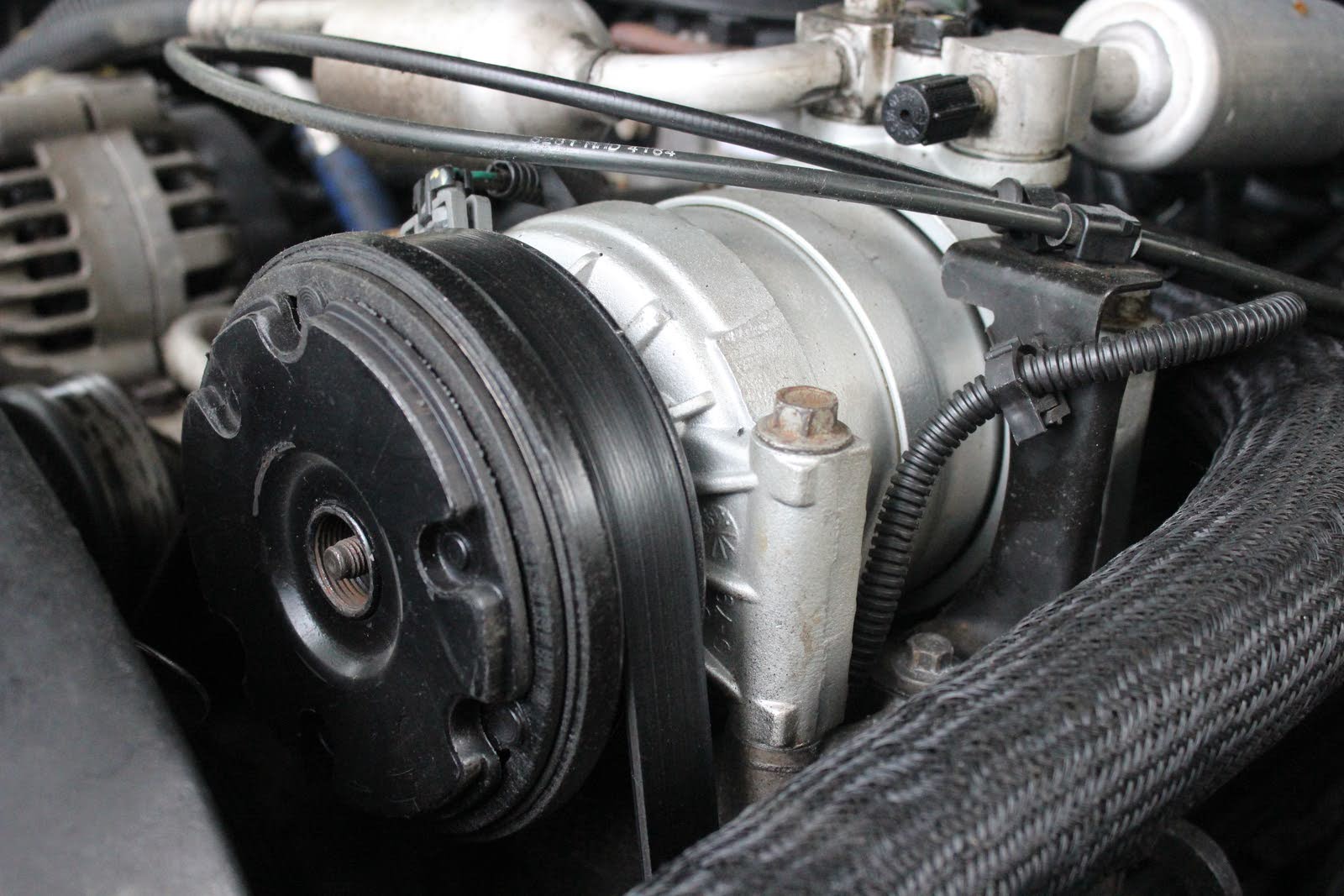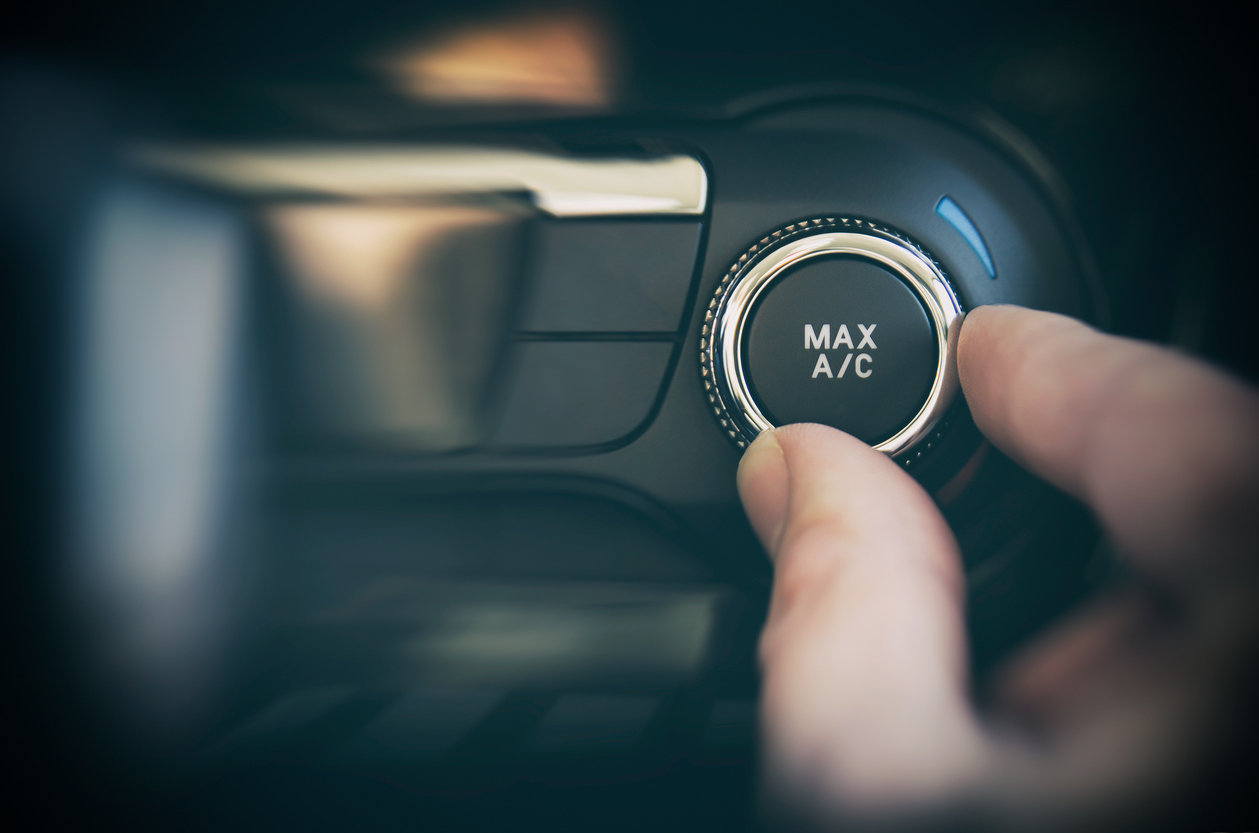If you've ever sat stranded in an endless traffic jam baking away on a 100-degree summer day without air conditioning, you'll agree that a functional car air conditioning system is essential. Yet unlike many simple repairs, automotive AC systems are often misunderstood and can be costly to fix. If something goes wrong, a little familiarity with your auto air conditioning system will help you understand the severity of the problem when talking with your mechanic and can save you money on the repair.
What Are the Common Signs of a Broken Air Conditioning System?

With its fan at full blast, a properly functioning AC system should be able to cool the vehicle's air by at least 40 degrees. If you're noticing a lack of cold air coming from the dashboard vents, your air conditioner is probably malfunctioning. In a broken system, the airflow may fluctuate from hot air to warm air to cool air only to become hot again.
At its most basic level, your car's AC system works by circulating liquid refrigerant, and it's possible for the system to leak. If your car windshield is inexplicably fogging up, or you're finding mysterious damp or even wet spots on the floor, the AC system could be the culprit. Water accumulating in your car will eventually result in mildew if left unaddressed, and could cause extensive damage as well.
Noise under the hood when turning the AC on or off, such as clattering system components or a squealing belt, is another symptom of a problem. Even if you still have cold air being produced by the blower motor, this noise could signal trouble with the air conditioner's compressor.
Why Did My AC Break in the First Place?

The AC system is sealed at the factory with a precise amount of refrigerant, known as a "charge." The required charge is under pressure at all times, so if there's a refrigerant leak, it will escape the system. Once the refrigerant, whether R134a, the newer R1234yf, or even R12 (a.k.a. Freon, found in older cars) has escaped, your car air conditioner won't be able to cool the air unless you get an AC recharge or repair. Often, the age of the AC system contributes to leaks. Even if you stay on top of routine maintenance, older cars are more likely to suffer from leaks due to their long exposure to heat, vibration, and general wear and tear.
Older cars might also have issues with the compressor, which is essentially the pump that pressurizes the refrigerant and forces it from a gas to a liquid state. The more miles you have on your car, the more wear and tear the compressor's components have experienced.
Road salt has a degrading effect on AC systems as well. Corrosion from road salt can cause leaks in an otherwise perfectly operating AC system. Of course, a leak could also be caused by something simple, like a blocked tube. Which brings us to the next question:
How Much is This Going to Cost Me?

First of all, avoid the temptation to perform your own AC service, even if your car is no longer under warranty. There are environmental regulations that must be followed, and specialized equipment is required to service an air conditioner correctly. The DIY recharge kits found at auto parts stores may help in the short term, but improper service could cause further damage to the system or mask more serious AC problems, leading to a more expensive car AC repair down the road. You're better off having a trusted mechanic or even a certified technician perform the work on the air cooling system.
If your AC system is low on refrigerant, a technician will add some and use a specialized sensor to check for leaks. If no leaks are found, a system check and recharge service may cost only around $100. But generally, AC systems shouldn't need periodic recharges, so if your mechanic is regularly recharging your AC, there is almost certainly a larger underlying problem.
If your mechanic or certified technician does find a leak, the leaking component will need to be replaced. AC components are located throughout your car, and the complexity of the layout will vary by car model. For instance, the compressor may be attached to the engine, but the condenser could be near the radiator at the front of the car, and the evaporator is often behind the dashboard. Lines, valves, and sensors run throughout the vehicle, connecting everything. Since it's harder to access the various components on some cars, the repair cost may vary dramatically from model to model.
If a technician finds that your AC compressor is malfunctioning, it's possible that your whole AC system will turn out to be contaminated with rust or metal particles. To fix this issue, a mechanic will have to flush it out, which can get expensive. Having an air conditioning service performed at the first sign of trouble can reduce the risk, although it's not cheap: Replacing the compressor and flushing the system can cost over $1,000.
The best advice you can follow to ensure that you're getting a fair price on a car air conditioning repair is to comparison shop—always get several estimates. The AC repair market is competitive in most areas of the country, and the effort of shopping around can be pay off by leading to a smaller bill.
The Bottom Line

You don't want to let your AC system remain inoperable indefinitely. It could deteriorate without the proper refrigerant level, making the eventual repair more complicated and more expensive. But in most cases, it's safe to continue driving your car in the short term while you seek multiple estimates for repair services. Finally, always ask for written documentation from the repair shop or AC technician that the problem is fixed—if the problem comes back, you want to be sure you're covered.
A functional AC system is an important part of your driving experience and shouldn't be ignored when it comes to car care. Paying attention to the performance of your AC and shopping around for a prompt, fair-priced fix at the first sign of trouble will save you money in the long run.
Related Topics
My Check Engine Light’s On—What Do I Do Now?
How To Check Your Tire Pressure
The 10-Step Automotive Checklist for Summer Road Trips

